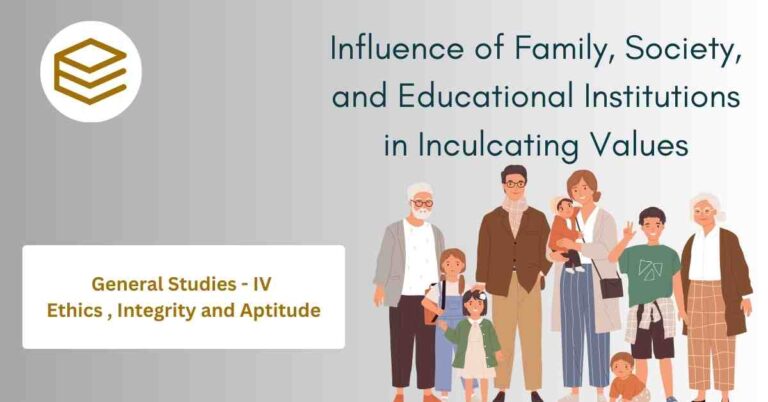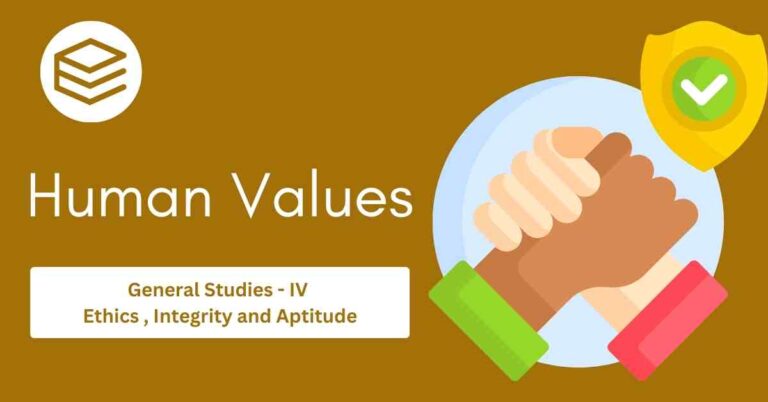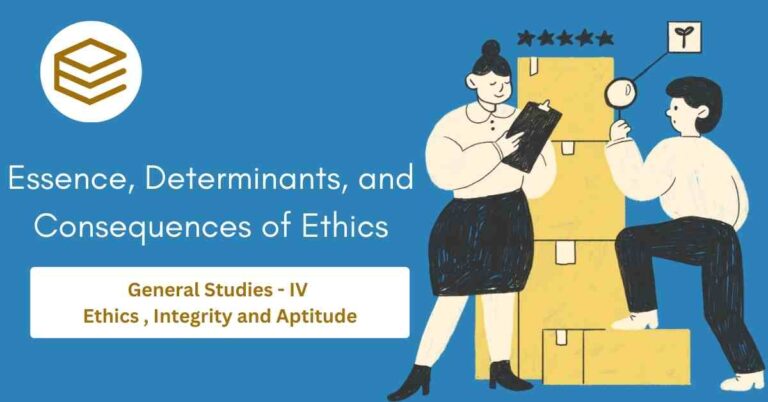January 25, 2026 4:29 am
Introduction: The Role of Ethics in Everyday Interactions
Ethics is the invisible thread that connects us all, shaping our actions, choices, and relationships. Whether it’s in a boardroom discussion, a community initiative, or a heart-to-heart conversation with a loved one, ethics determines the tone and direction of our interactions. In public relationships, ethics manifests through principles like fairness, honesty, and accountability, ensuring that societal systems remain just and functional. In private relationships, it is the silent agreement of trust, loyalty, and mutual respect that binds people together.
In this essay, we’ll uncover the profound role of ethics in public and private relationships. By exploring its significance, challenges, and impact, we’ll see how it serves as the backbone of trust and harmony in human connections.
Ethics in Public Relationships: Building Trust in Larger Communities
Public relationships encompass interactions in professional, societal, and organizational settings. They are often governed by formal guidelines designed to align individual actions with the greater good.
1. Ethics in the Workplace: The Cornerstone of Professionalism
Imagine a workplace where everyone prioritizes honesty and fairness. It’s not just about meeting deadlines or generating profits; it’s about creating an environment where people feel valued and respected.
- Why It Matters: Ethics in professional relationships fosters a culture of transparency, accountability, and respect. Employees who act with integrity build trust within teams and with clients.
- Examples of Ethical Practices:
- Following company policies even when no one is watching.
- Respecting diverse perspectives during decision-making processes.
- Protecting sensitive information to safeguard privacy.
When a leader, for example, openly acknowledges a mistake rather than hiding it, they not only demonstrate ethical behavior but also set a standard for the entire organization. This ripple effect strengthens the integrity of professional relationships.
2. Ethics in Governance and Community Interactions
In society, ethics ensures that public systems—law, governance, healthcare, and education—work for the benefit of all.
- Civic Ethics: Following laws, paying taxes, and participating in civic duties are acts of ethical citizenship.
- Environmental Ethics: Community-driven efforts like recycling or conserving water reflect responsibility toward future generations.
A compelling real-world example is the introduction of transparency laws, which prevent corruption in government systems. When citizens know how their taxes are being spent, trust in public institutions grows.
3. The Role of Media Ethics
The media is a powerful force, capable of influencing millions of people. Ethical media practices ensure that this influence is used responsibly.
- Key Principles:
- Truthfulness: Providing accurate and unbiased reporting.
- Social Responsibility: Highlighting important issues, such as climate change or social inequality, rather than sensationalism.
- Privacy Respect: Avoiding unnecessary intrusion into personal lives unless it serves the public interest.
Imagine how different public discourse could be if every media outlet upheld these ethical standards. People would feel informed rather than manipulated, and trust in journalism would be restored.
Ethics in Private Relationships: Nurturing Bonds That Matter
Private relationships are deeply personal, often emotional, and guided by values rather than formal rules. Ethics in this realm helps create environments where individuals feel safe, valued, and understood.
1. Family Ethics: The Foundation of Personal Values
Families are where ethical behaviors are first learned and practiced. Parents, siblings, and extended family members influence our understanding of honesty, empathy, and fairness.
- How Ethics Functions in Families:
- Open Communication: Encouraging discussions about feelings, decisions, and mistakes promotes trust.
- Mutual Support: Helping each other during difficult times reflects loyalty and responsibility.
- Fair Treatment: Avoiding favoritism and respecting individual choices strengthen family bonds.
For example, a parent who listens to their child’s concerns without judgment fosters an environment where the child feels comfortable expressing themselves. This ethical approach not only strengthens their relationship but also teaches the child how to approach others with empathy.
2. Friendship: The Ethics of Loyalty and Respect
Friendships, unlike family relationships, are chosen. Ethical behavior ensures that these bonds remain meaningful and enduring.
- Core Ethical Values in Friendships:
- Loyalty: Standing by a friend through challenges without compromising personal integrity.
- Honesty: Speaking the truth, even when it’s uncomfortable, shows care and respect.
- Boundaries: Respecting a friend’s personal space and decisions ensures balance.
Imagine a friendship where both parties feel free to share their vulnerabilities without fear of betrayal. It’s a space built on trust—a direct result of ethical conduct.
3. Romantic Relationships: Ethics as the Foundation of Love
Romantic relationships thrive on trust, respect, and understanding. Ethics ensures that these elements remain intact, even during challenges.
- Key Ethical Practices:
- Transparency: Honest communication about expectations and concerns prevents misunderstandings.
- Respect for Individuality: Celebrating differences rather than trying to change a partner fosters mutual respect.
- Consent and Boundaries: Recognizing and respecting a partner’s limits is non-negotiable in an ethical relationship.
An example of ethical behavior in romance is addressing conflicts constructively rather than resorting to blame. Such behavior not only resolves issues but also strengthens emotional intimacy.
Challenges in Maintaining Ethical Relationships
Despite its importance, ethical behavior is not always easy to uphold. Several challenges can hinder individuals in both public and private contexts.
1. Conflicts of Interest
In public relationships, personal gains can clash with ethical obligations. For instance, a government official might face pressure to favor a particular party, even when it’s unethical.
2. Emotional Bias
In private relationships, emotions can cloud judgment. Favoritism, neglect, or overprotectiveness are common examples of how ethical principles can be compromised.
3. Cultural and Social Pressures
Ethical standards vary across cultures and societies. What is considered ethical in one context may not align with another, creating conflicts in global or diverse settings.
Why Ethics Matter: The Impact on Relationship Quality
Ethics serves as the bedrock of meaningful relationships. Its impact can be seen in several key areas:
- Trust Building: Relationships thrive when people trust that others will act with integrity. For example, in a workplace, employees are more likely to collaborate when they trust their colleagues to be fair and honest.
- Conflict Resolution: Ethical principles, such as honesty and empathy, help resolve conflicts constructively. A family dispute, for instance, is easier to resolve when all parties are committed to open communication and mutual respect.
- Personal Growth: Acting ethically fosters self-respect and accountability, leading to better individual and relational outcomes. For example, someone who values honesty in a romantic relationship is more likely to feel secure and content.
Consider a public servant who consistently acts with transparency. Their ethical behavior not only gains public trust but also inspires colleagues to follow suit, creating a positive feedback loop. Similarly, a parent who models fairness and respect encourages their children to adopt these values in their own relationships.
Promoting Ethics: Steps for a Better Future
Fostering ethical behavior in both public and private relationships requires intentional effort and systematic approaches. Below are some effective strategies:
1. Education and Awareness
Teaching ethical principles early in life lays a strong foundation. Schools, community programs, and workplace training sessions can promote moral reasoning, critical thinking, and the importance of integrity in daily interactions. For instance:
- Ethics Workshops in professional settings teach employees how to navigate dilemmas like conflicts of interest.
- Family discussions about values instill a strong moral compass in children.
2. Lead by Example
Leaders, whether in families, workplaces, or society, play a crucial role in promoting ethics. By demonstrating ethical behavior, they inspire others to emulate their actions. A manager, for example, who prioritizes fairness and respect in decision-making, sets the tone for the entire team.
3. Create Safe Spaces for Dialogue
Encouraging open communication helps address ethical dilemmas and misunderstandings before they escalate. For example:
- Workplaces can implement anonymous reporting systems for unethical practices.
- Families can hold regular discussions to foster understanding and mutual support.
4. Accountability Mechanisms
In public relationships, well-defined ethical codes and consequences for unethical behavior ensure adherence to standards. Organizations, for instance, can establish whistleblower protections to encourage reporting of unethical actions.
5. Self-Reflection
Individuals should regularly evaluate their actions to ensure alignment with their values. Reflecting on questions like “Was I fair in my decision?” or “Did I act with honesty?” helps maintain ethical integrity.
The Intersection of Public and Private Ethics
In today’s interconnected world, the lines between public and private relationships are increasingly blurred. Consistency in ethical behavior across both spheres is essential for maintaining trust and credibility.
- Public to Private Ethics: A politician known for honesty and accountability in public service is more likely to inspire trust in their personal relationships.
- Private to Public Ethics: A person who values transparency in their family dealings is more likely to exhibit the same principle in professional or societal roles.
Navigating this intersection requires individuals to adopt a holistic view of ethics, treating it not as compartmentalized rules but as a way of life. For instance, a teacher who advocates for equality in the classroom can reinforce this value in their own family by ensuring that all their children feel equally valued.
Challenges in Promoting Ethical Behavior
Despite its importance, promoting ethics faces several challenges:
- Moral Relativism: Different cultures and societies have varying definitions of what is right and wrong. This can create confusion or conflict when people from diverse backgrounds interact.
- External Pressures: Societal, organizational, or peer pressures can compel individuals to act unethically. For instance, a young employee might feel pressured to comply with unethical practices to please their superiors.
- Lack of Awareness: Many individuals are unaware of ethical guidelines or fail to recognize their importance. This highlights the need for education and training in ethical behavior.
- Emotional Interference: In private relationships, emotions like anger or jealousy can cloud judgment, leading to actions that conflict with ethical values.
Real-World Examples of Ethical Leadership
Throughout history, leaders who have championed ethical principles have left lasting legacies. Here are some compelling examples:
- Nelson Mandela: His commitment to justice, equality, and reconciliation during South Africa’s transition from apartheid showcased the transformative power of ethics in public life.
- Patagonia’s Leadership: This company’s focus on sustainability, fair labor practices, and corporate responsibility exemplifies how businesses can operate ethically while still thriving.
- Everyday Role Models: Parents or mentors who demonstrate integrity and kindness in personal interactions inspire others to uphold similar values.
These examples highlight how ethical behavior, whether on a grand scale or in everyday life, fosters trust and creates lasting impact.
Conclusion: Ethics as the Foundation of Connection
In both public and private relationships, ethics is the invisible glue that holds trust, respect, and understanding together. It governs actions in the workplace, in society, and in personal settings, ensuring that all interactions are fair, transparent, and meaningful.
While challenges like conflicts of interest, cultural differences, and emotional biases may complicate ethical behavior, intentional efforts—such as education, role modeling, and self-reflection—can help overcome these obstacles. By embracing ethics as a way of life, individuals and communities can create environments where relationships thrive and trust flourishes.
Ultimately, the role of ethics is not just about making right decisions but about building a world where relationships—whether public or private—are guided by honesty, fairness, and compassion.





